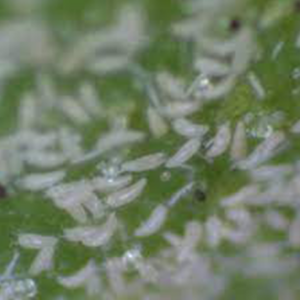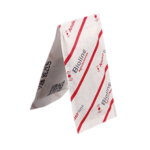This minute mite forms huge colonies on the stems of tomato or aubergine plants, which show up as a ‘rust-coloured’ mass which spreads along the stem. Aculops lycopersici belongs to the family Eriophyidae, which are characteristically tiny and ‘worm-like’ in appearance. Other species in the same family cause russetting on apples and citrus fruits, and form galls on the leaves of plants.
Until recently, there were no adequate biological controls for this pest. Trials had shown that Amblyseius cucumeris, Amblyseius californicus and Amblyseius montdorensis were able to feed on the mite, but they did not gave adequate control of the pest in glasshouse situations. The best results were obtained from the use of Amblyline CRS sachets (Amblyseius cucumeris), which slowed the spread of infestation on individual plants but did not stop it.
Amblyseius andersoni, a predatory mite recently introduced into commercial production, has now changed that situation. This predator is available in our patented Anderline Gemini sachets, which release several hundred predators onto the crop over a period of several weeks. The Gemini sachets should be hung as high as possible on the plants, so that the predators are released in front of the advancing Rust Mite infestation. Trials in commercial tomato crops have shown that predators colonise the entire plant, and are able to prevent severe damage when used early enough.


